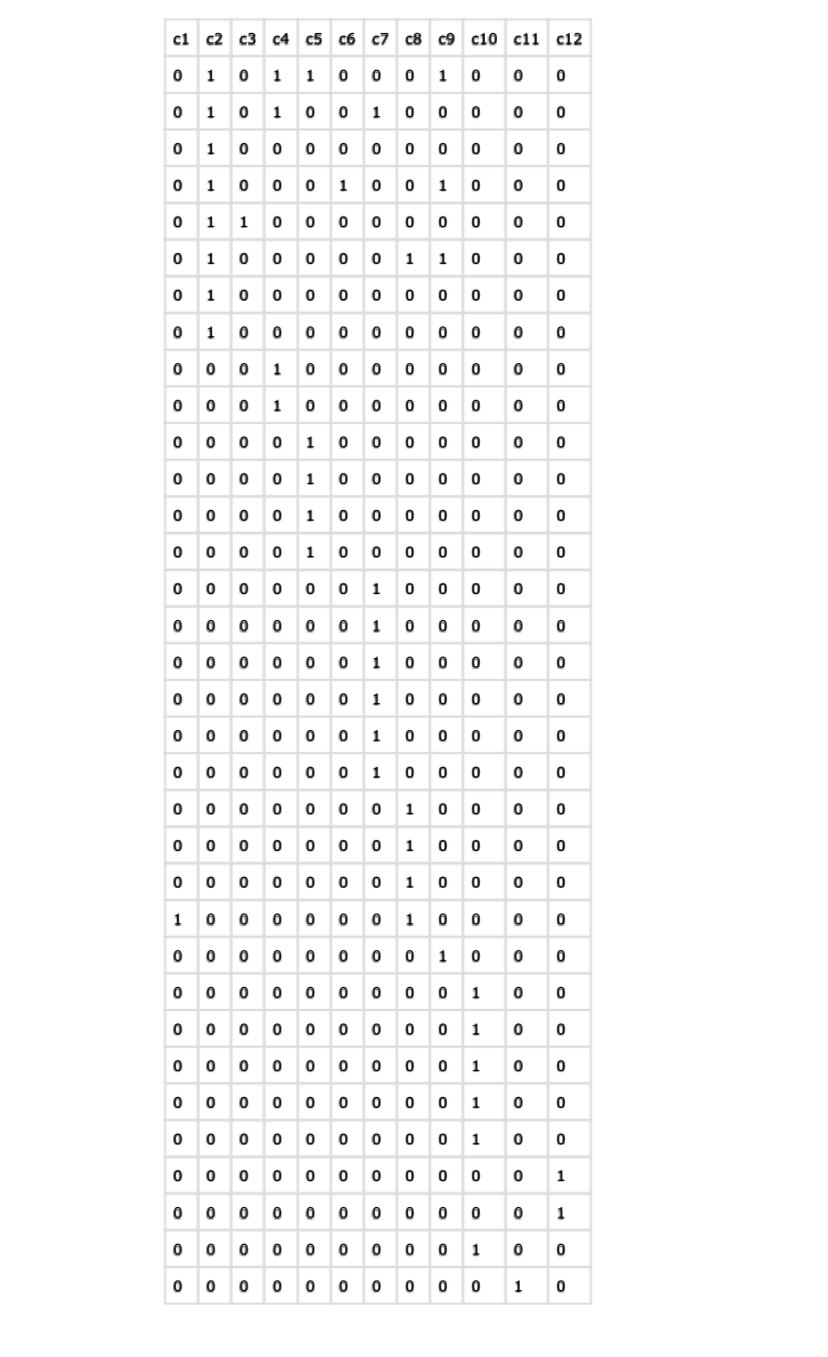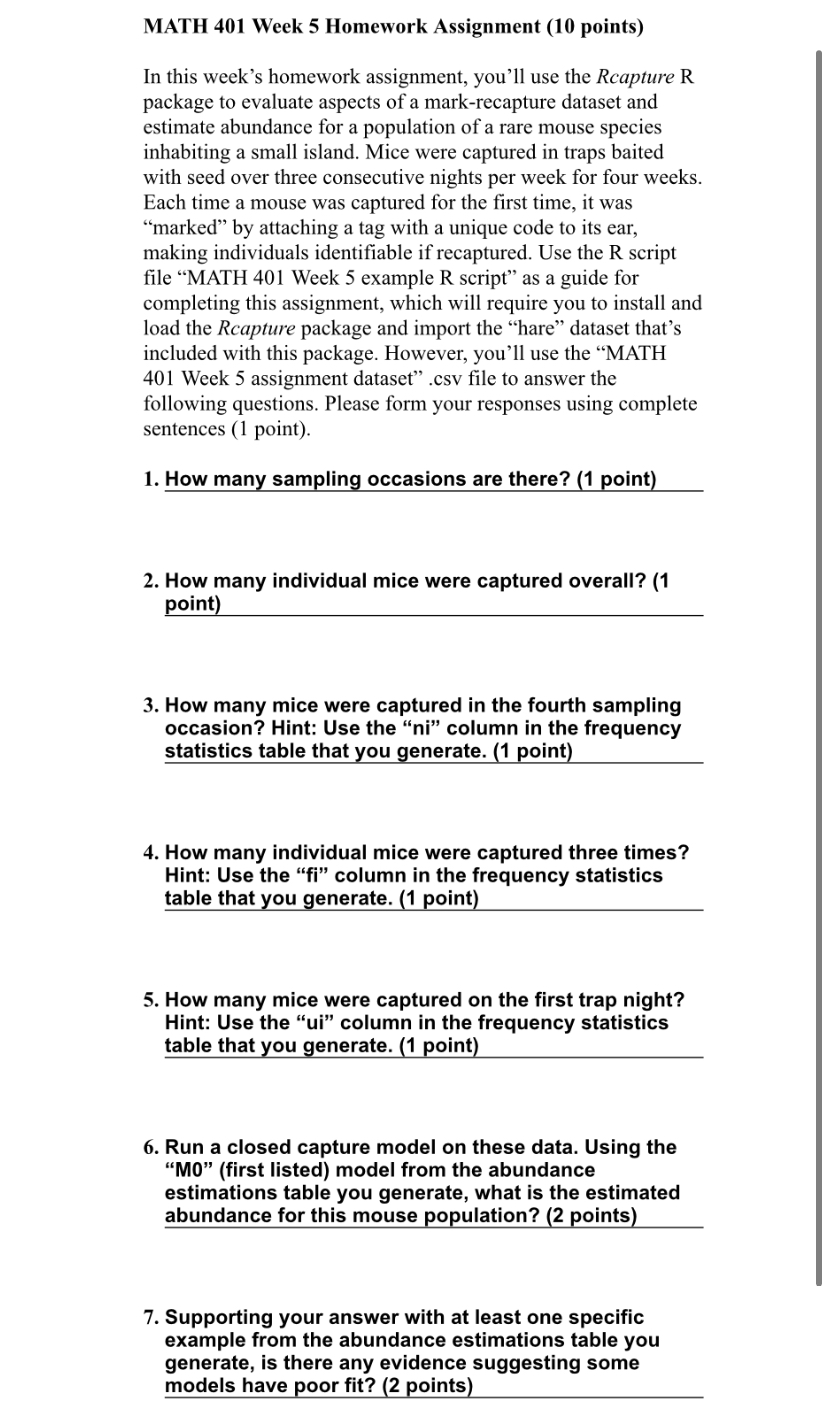Answered step by step
Verified Expert Solution
Question
1 Approved Answer
c1 c2 c3 c4 c1 c2 c3 c4 c5 c6 c7 c8 c9 c10 c11 c12 010110001000 010100100000 010000000000 010001001000 011000000000 010000011000 01000000 0000


c1 c2 c3 c4 c1 c2 c3 c4 c5 c6 c7 c8 c9 c10 c11 c12 010110001000 010100100000 010000000000 010001001000 011000000000 010000011000 01000000 0000 01000000 0 0 0 0 000100000000 000100000000 000010000000 000010000000 000010000000 000010000000 000000100000 0000001000 0 000000100000 000000100000 000000100000 000000100000 000000010000 000000010000 0000T0000000 100000010000 001000 000000000100 00 1000000000 000000000001 000000000001 000000000 100 00000 0 0 0 0 0 1 0 MATH 401 Week 5 Homework Assignment (10 points) In this week's homework assignment, you'll use the Rcapture R package to evaluate aspects of a mark-recapture dataset and estimate abundance for a population of a rare mouse species inhabiting a small island. Mice were captured in traps baited with seed over three consecutive nights per week for four weeks. Each time a mouse was captured for the first time, it was "marked" by attaching a tag with a unique code to its ear, making individuals identifiable if recaptured. Use the R script file "MATH 401 Week 5 example R script" as a guide for completing this assignment, which will require you to install and load the Rcapture package and import the "hare" dataset that's included with this package. However, you'll use the "MATH 401 Week 5 assignment dataset .csv file to answer the following questions. Please form your responses using complete sentences (1 point). 1. How many sampling occasions are there? (1 point) 2. How many individual mice were captured overall? (1 point) 3. How many mice were captured in the fourth sampling occasion? Hint: Use the "ni" column in the frequency statistics table that you generate. (1 point) 4. How many individual mice were captured three times? Hint: Use the "fi" column in the frequency statistics table that you generate. (1 point) 5. How many mice were captured on the first trap night? Hint: Use the "ui" column in the frequency statistics table that you generate. (1 point) 6. Run a closed capture model on these data. Using the "MO" (first listed) model from the abundance estimations table you generate, what is the estimated abundance for this mouse population? (2 points) 7. Supporting your answer with at least one specific example from the abundance estimations table you generate, is there any evidence suggesting some models have poor fit? (2 points)
Step by Step Solution
There are 3 Steps involved in it
Step: 1

Get Instant Access to Expert-Tailored Solutions
See step-by-step solutions with expert insights and AI powered tools for academic success
Step: 2

Step: 3

Ace Your Homework with AI
Get the answers you need in no time with our AI-driven, step-by-step assistance
Get Started


